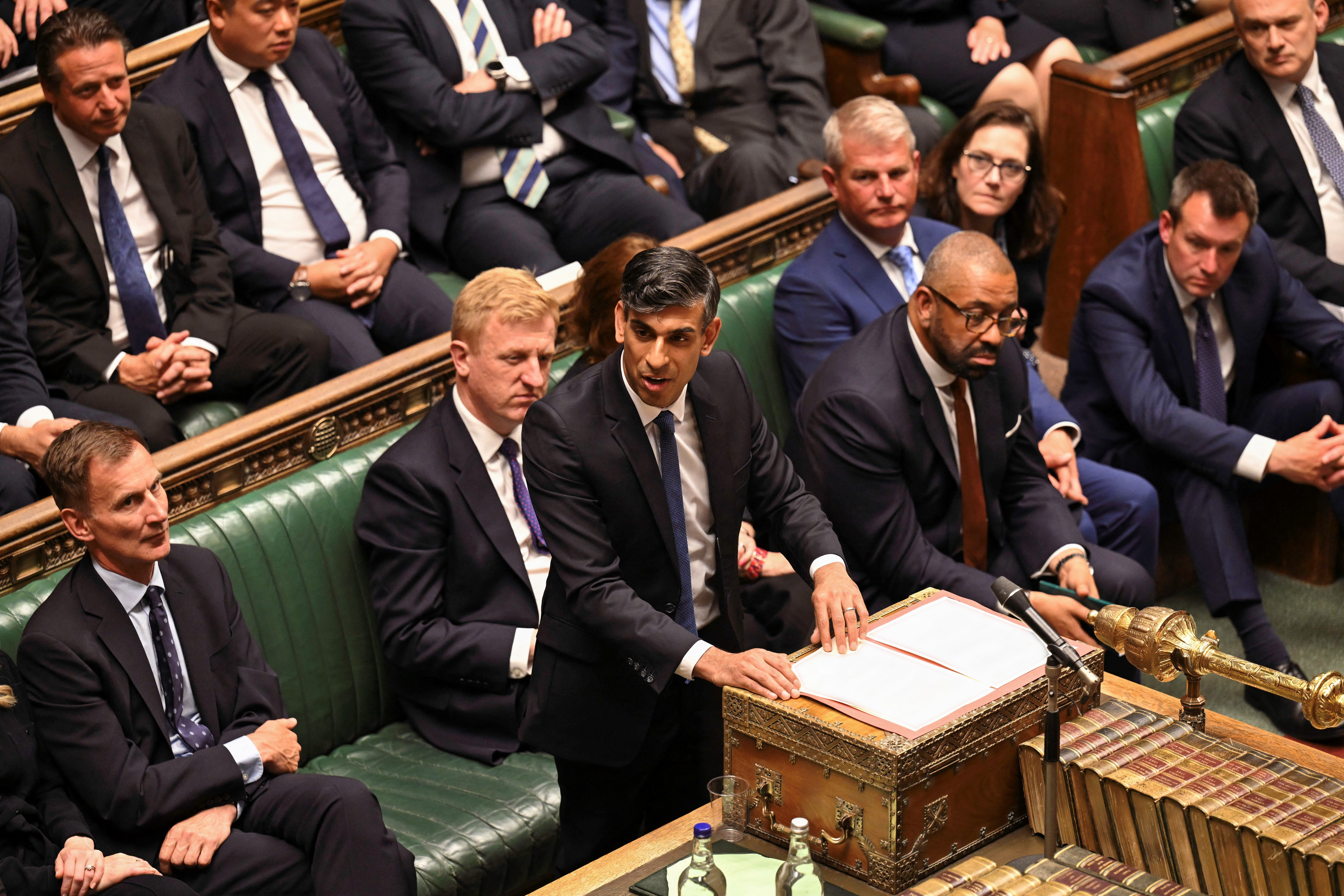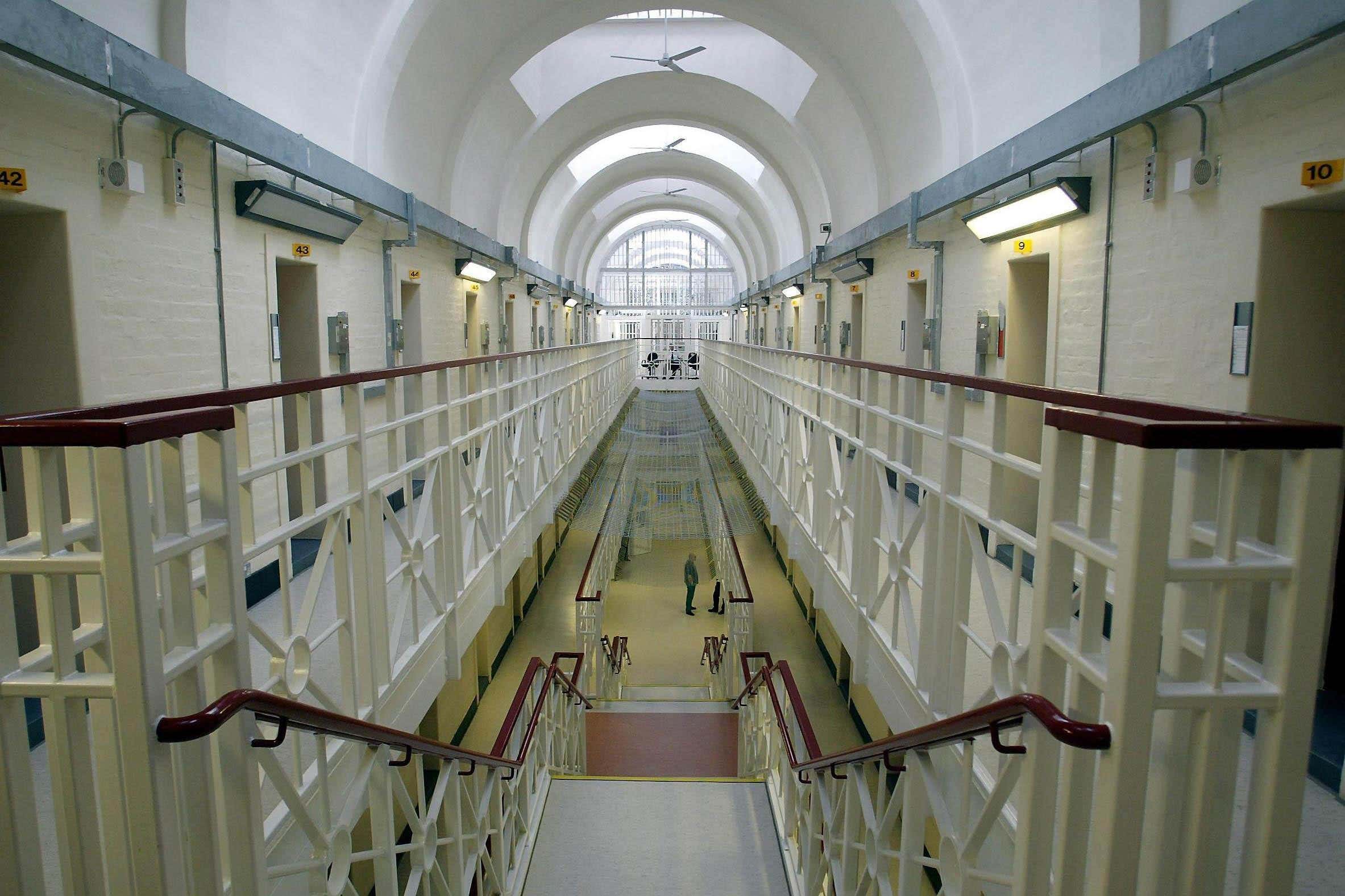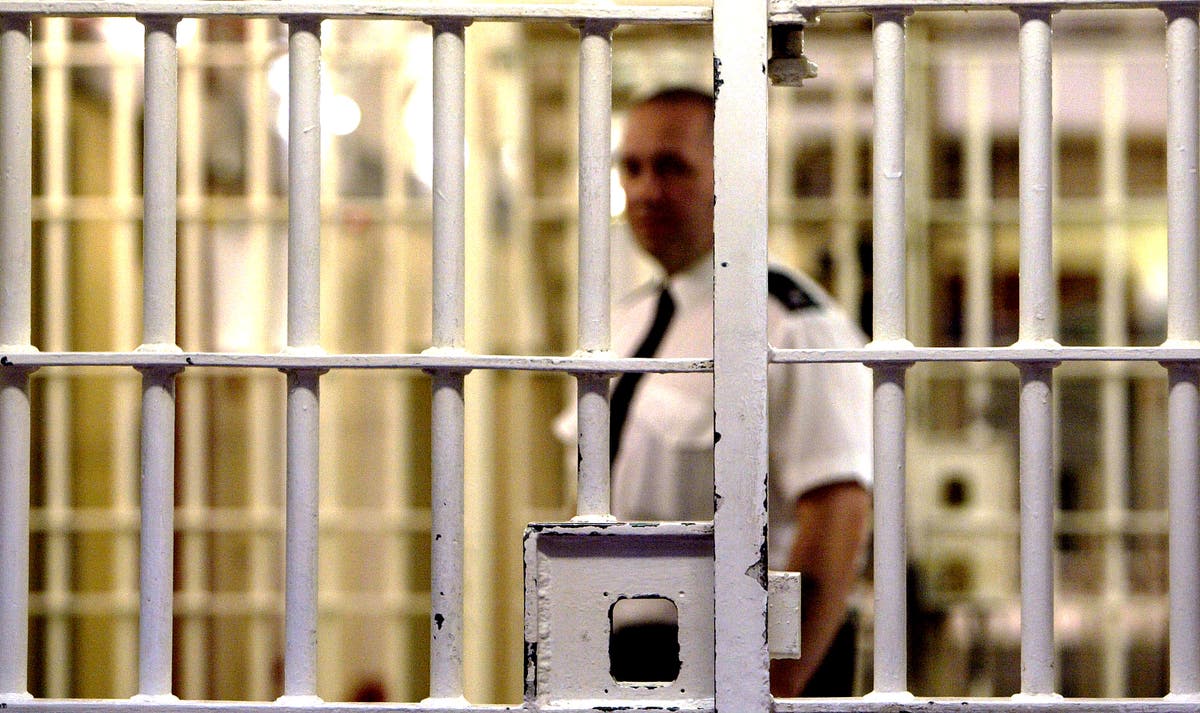Emergency plans to cut prisoner sentence lengths to ease the overcrowding crisis and avert “a total breakdown in law and order” will last until 2026 at least, the justice secretary has announced.
In a furious speech at HMP Five Wells, Shabana Mahmood lambasted the decision by Rishi Sunak’s government to delay the new measures announced by Labour on Friday to release many prisoners 40 per cent of the way into their sentences – as opposed to halfway through – until after the election.
And it was also revealed the emergency early release scheme brought in by the previous government in October had seen 10,000 inmates freed early, but had barely put a dent in the prison population.

Announcing a review into how the crisis was allowed to unfold, Ms Mahmood accused Tory ministers of putting “their political careers ahead of the safety and security of our country” in the “most disgraceful dereliction of duty I have ever known”.
The new justice secretary painted a bleak picture as she warned the current situation threatened “the collapse of the criminal justice system and a total breakdown of law and order” – with “looters running amok, smashing in windows, robbing shops and setting neighbourhoods alight.”
Warning of vanloads of dangerous suspects circling the country if no prison spaces are available for them, she said: “The police would have to use their cells as a prison overflow, keeping officers off the streets. Soon, the courts would grind to a halt, unable to hold trials. The police would have to stop carrying out arrests.”
The new emergency scheme will begin in September and will be reviewed in 18 months, with sentences for sexual, serious violence and domestic abuse offences among those to be exempt, Ms Mahmood said.
She also pledged to recruit 1,000 new probation staff, but there was no mention of new funding for the cash-strapped service. Probation union Napo said it had demanded that Ms Mahmood reopen pay negotiations, refusing to take the threat of industrial action off the table.
In the longer term, the justice secretary vowed Labour’s legacy would be a “probation service that keeps the public safe” and prisons which “break the cycle of reoffending”, as she pledged to publish a 10-year “capacity strategy” later this year.
But the previous government’s scheme emergency End of Custody Supervised Licence scheme – which first saw inmates freed inmates up to 18 days early before being expanded to 35 and then 70 days – will remain in place until September, despite warnings it had caused “absolute mayhem”.

Dubbing the scheme “bad policy” rolled out “under a veil of secrecy”, Ms Mahmood said: “Prisoners were released with scarcely any warning to probation officers, placing them under enormous additional strain. This was only ever a short-term fix: an attempt to delay disaster by a few more weeks and keep the public in the dark.”
While the last government refused to publish data on how many inmates were released, drawing outrage from senior Tory MPs and experts demanding transparency, the Ministry of Justice finally revealed on Friday that a total of 10,083 prisoners had been released early between 17 October and 30 June.
However, data published simultaneously showed the occupancy rate in prisons rarely fell below 99 per cent over the same period – suggesting the emergency scheme failed to make any meaningful dent in the crisis which has seen prisoners doubled up in cells and other suspects housed in police stations.
Official data shows that, in the final quarter of 2023 alone, more than 7,000 prisoners were recalled to prison for licence breaches – which experts say are made more likely by releasing inmates into homelessness or without adequate pre-release planning into an already dangerously overstretched probation service.
Speaking to The Independent on Thursday, Napo union chief Ian Lawrence said the scheme had caused “absolute mayhem” for the already overstretched probation service, expressing hopes that the new move towards a more structured recalculation of sentence lengths would ease some of the pressure.

An inspection at HMP Lewes previously found prisoners had been recalled within days of release under the “chaotic” scheme, with an inmate convicted of stalking and domestic abuse who was deemed a risk to children among those freed early – despite government insistences high-risk criminals would not be eligible.
The previous government insisted in October that it had “done more than ever before to protect the public and keep sex offenders locked up for longer, ending automatic halfway release for rapists and serious violent offenders, and sending rapists to prison for three years longer than in 2010”.
It blamed the pandemic and barristers’ strikes for causing “a significant spike” in the prison population, by driving up the number of people held on remand, which hit a record high last year. While the pandemic did fuel the record courts backlog, many legal experts blame austerity cuts for hollowing out court capacity.
Welcoming the new government’s “recognition of the seriousness of the situation” and swift response announced on Friday, HM chief inspector Charlie Taylor said a decision to address the crisis “needed to be taken and none would have been without risk”.
“This latest measure will inevitably lead to the early release of some risky offenders, and will add to the workload of already stretched prison … [staff] and probation services. How these men are prepared for release and how prisons and probation are supported in managing them will be vital,” he said.
“We will be watching this very closely as well as any plans that are developed once the immediate pressure is relieved that seek to make prisons places of genuine purpose, help people to break the cycle of reoffending and protect the public from future harm.”
Warning that some parts of the UK are facing probation staff shortfalls of 50 per cent despite their caseload being nearly three times the size of the 88,000-strong prison population, chief inspector of probation Martin Jones questioned whether there is “enough time” to get probation processes “right” ahead of September.
He told Times Radio: “They need to ensure that they identify the risk that those people represent and that they identify what their needs are when they leave prison. Do they have accommodation? Do they have jobs to go to? Do they have, for example, drugs and mental health support in the community?”
Pointing to “real problems at the front line” already, he added: “So how are they going to have the capacity to ensure that they safeguard the public when they’re being released from custody?”


